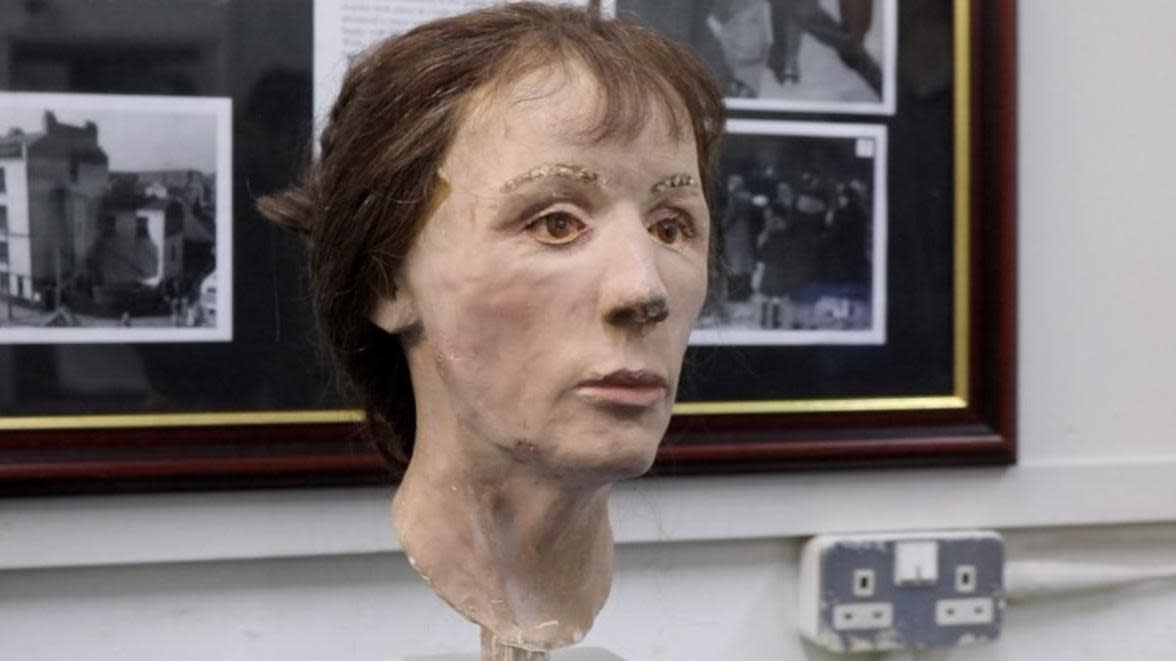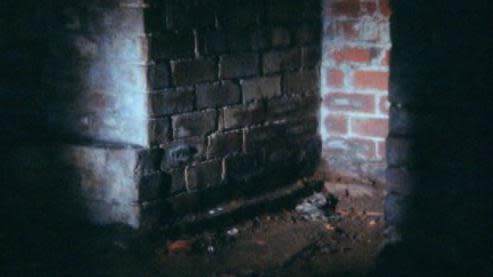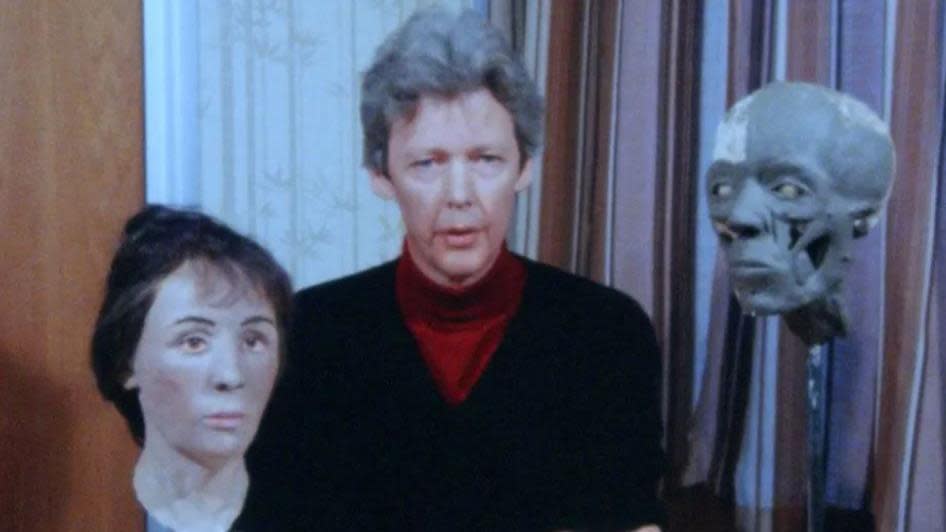Body in cellar mystery led man to long-lost mum

A man whose mother vanished 50 years ago said the mystery of a woman's body found in a cellar was the "catalyst" for their reunion.
The man, who asked to be identified only as Matthew, said his mother had left him and his two siblings in 1974 and "dropped off the face of the Earth".
It was listening to a podcast about the discovery of a partially mummified body at a house in Bolton that prompted him to contact police.
And he would quickly learn that his mother - whom he feared might have been the dead woman - was actually alive and well.

Detectives still do not know the identity of the woman, whose remains were discovered in a cellar in Bolton in 1982, wrapped in an old newspaper from 1966.
The case gained national attention in 1983 as the first time a ground-breaking facial recognition technique was used in a public appeal by a British police force.
Forensic artist Richard Neave created a likeness of Mary Ellen's face using scientific measurements of her skull and strips of modelling clay.
A BBC Radio Manchester investigation, The Forgotten Dead, re-examined the case in 2022 in an effort to solve the mystery.
Matthew, who now lives in mid Wales and was three when his mother disappeared, said he knew it had been a "long shot" that it might be her, but he contacted Greater Manchester Police to raise his fears after hearing the series.
'No trace'
His mother was 27, had three children and was living in Bolton when she disappeared without a trace in about 1974, he said.
Matthew, now 53, said his mother had a "tempestuous" relationship with a married man, who was "quite a violent person", in the early 1970s.
He said his mother, who was herself divorced, frequently hid at her mother's house to avoid him.
One day she took him and his siblings to his grandmother's house telling her she needed to back to her flat "because she had the gas man coming round".
“And that was it. She's never seen again. She just completely dropped off the face of the earth," said Matthew.

For the next 50 years he was left with nagging questions about what had happened to his mother.
He had very little information, a vague idea of where his mother had been living in Bolton, and a rough idea of when she disappeared, and a few photographs.
Last year, at Matthew's request, GMP took another look at his mother’s disappearance.
He had feared she was dead and "something had happened at the time of her disappearance".
But Matthew said he was shocked to learn from the force that she was alive.
"It just turned everything upside down," he said.
Matthew said police could not give him his mother's contact details, but were able to pass on a letter from him.
About three months after he wrote the letter, Matthew got a phone call from his mother, and they spoke for the first time in 50 years.
He said they started to speak on a regular basis, but it was a "real rollercoaster of emotions" for the first few weeks.
Shortly afterwards, they held a video call and and he saw his mother for the first time in five decades.
Actually seeing her was "another milestone", he said.
Months later, the mother and son met in person for the first time.
He recalled saying "Hello mum" and sharing a big hug with her.
"She was in fear of her life, and in fear of her children’s lives" and had to make a decision that "no mother should ever have to make to escape a violent partner", he said.
Series 1 and 2 of The Forgotten Dead: The Body in the Cellar, are on BBC Sounds.
Listen to the best of BBC Radio Manchester on Sounds and follow BBC Manchester on Facebook, X and Instagram? You can also send story ideas to northwest.newsonline@bbc.co.uk

